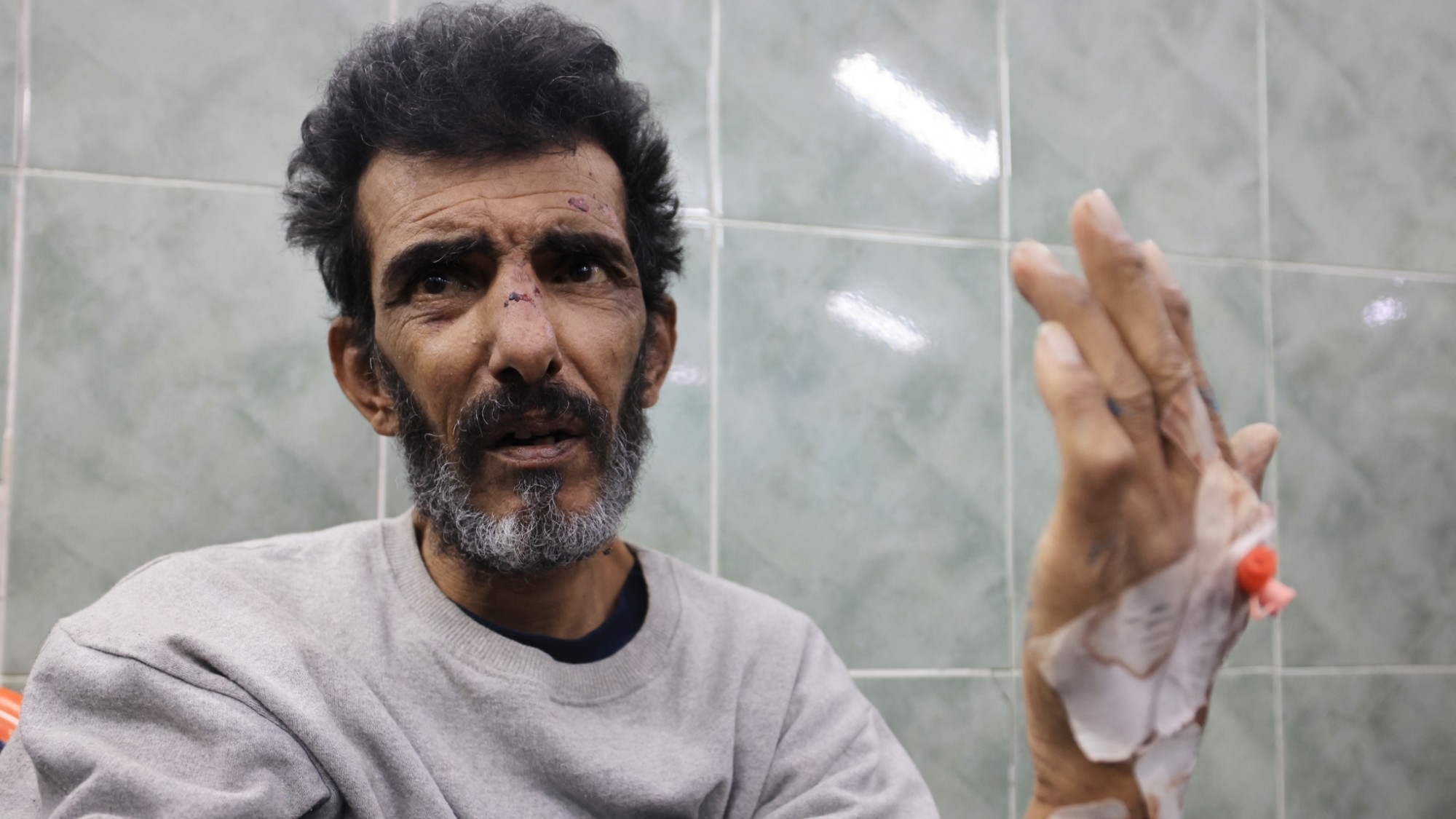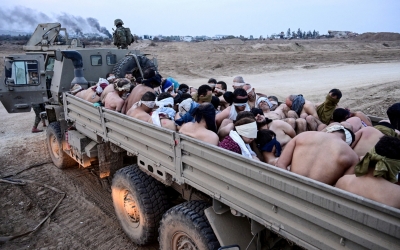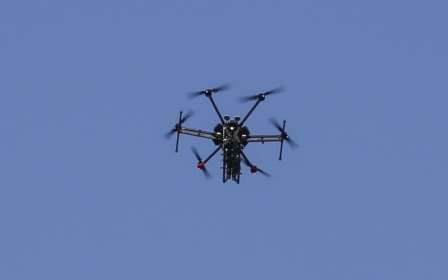Gaza detainees 'urinated on, made to act like animals' by Israeli forces, Unrwa says

The United Nations agency for Palestinian refugees (Unrwa) said it received reports of mass ill treatment of Palestinians taken captive from Gaza by Israeli forces, including detainees being urinated on and made to act like animals, and children being attacked by dogs.
A new report, released on Palestinian Prisoners' Day on Wednesday, warned that for the thousands of prisoners kept in detention by the Israeli army, physical, sexual and psychological abuse were routine.
"This included being subjected to beatings while made to lie on a thin mattress on top of rubble for hours without food, water or access to a toilet, with their legs and hands bound with plastic ties. Several detainees reported being forced into cages and attacked by dogs. Some released detainees, including a child, had dog bite wounds on their body," read the report.
"Detainees were threatened with prolonged detention, injury or the killing of family members if they did not provide requested information."
The testimonies come from some of the 1,506 detainees that Unrwa said it had documented being released from Israeli detention between November and 4 April. Of those released, there were 43 children (39 boys, four girls), 84 women and 23 members of Unrwa.
Among those abused while in detention were Unrwa staff, who the agency said were made to make forced confessions in addition to suffering other forms of abuse.
Unrwa said other detainees reported having wet blankets thrown on them, or "being made to sit on their knees for 12-16 hours a day while in the barracks, blindfolded, with their hands tied".
Unrwa also received reports of sexual violence against prisoners. Male victims said they received beatings to their genitals, while at least one detainee reported "being made to sit on an electrical probe" and said he saw one man die after a probe was inserted into his anus.
Both men and women were photographed and filmed while naked and subjected to inappropriate touching.
Middle East Eye contacted the Israeli army for comment, but had received no response at time of publication.
'The worst kinds of torture'
In a statement marking Palestinian Prisoners' Day, the Gaza media office said over 5,000 Palestinians had been arrested by Israeli forces during their current war on Gaza, which started on 7 October.
The office also said that Palestinian prisoners were undergoing "the worst kinds of torture" in Israeli jails, and asked the international community to intervene.

While MEE cannot independently verify the testimonies given in the Unrwa report, they support other testimony given by former prisoners to MEE last month, in which they described being physically tortured with dogs and electricity, subjected to mock executions, and held in humiliating and degrading conditions.
One man, who was taken by Israeli forces from a school in Gaza where he had sought refuge with his family, described to MEE how he had been handcuffed, blindfolded and detained in a metal cage for 42 days.
During interrogations, he said he had been given electric shocks, and was scratched and bitten by army dogs.
Other men also described being electrocuted, attacked by dogs, doused with cold water, denied food and water, deprived of sleep, and subjected to constant loud music.
Hamas on Wednesday said freeing Palestinian prisoners in Israeli jails was a "top priority" and called for a global movement in support of the prisoners' cause.
"[Israel]'s prison administration continues to practice the most heinous crimes against prisoners inside prisons and detention centres, including medical negligence, torture and direct killing," the statement from the group read, adding that 16 prisoners have died in Israeli jails since 7 October.
Last month, the Israeli military said that it was aware of the deaths of 27 Palestinians in its custody.
This article is available in French on Middle East Eye French edition.
Middle East Eye propose une couverture et une analyse indépendantes et incomparables du Moyen-Orient, de l’Afrique du Nord et d’autres régions du monde. Pour en savoir plus sur la reprise de ce contenu et les frais qui s’appliquent, veuillez remplir ce formulaire [en anglais]. Pour en savoir plus sur MEE, cliquez ici [en anglais].




